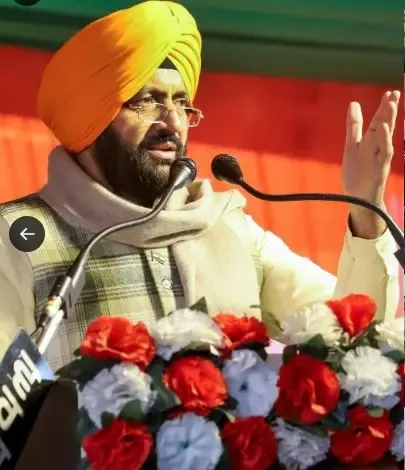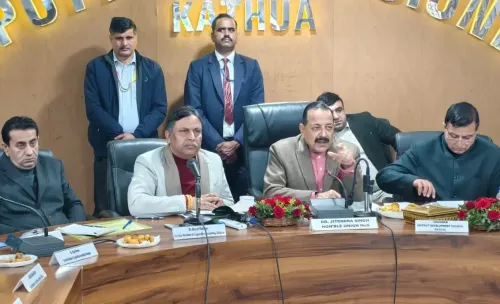What is the Kashi Declaration for a Drug-Free Society?

Synopsis
Key Takeaways
- The Kashi Declaration is a significant national commitment against substance abuse.
- It promotes a comprehensive approach involving government and society.
- The Summit featured diverse discussions on substance abuse's various dimensions.
- A national culture of sobriety is a primary goal by 2047.
- Institutional mechanisms will aid in the implementation of the declaration.
Varanasi, July 20 (NationPress) The Kashi Declaration, which emphasizes a national agreement to view substance abuse as a complex public health and societal issue, was officially adopted during the Youth Spiritual Summit on Sunday. This declaration advocates for a comprehensive approach, engaging both government and society.
Union Minister of Youth Affairs and Sports, Mansukh Mandaviya, stated, “In a country where 65% of the population is young, if this generation succumbs to addiction, only those who overcome it will shape the future.”
During the Summit, the Minister remarked, “Our reflections from the past three days, through various thematic discussions, have led to the creation of the Kashi Declaration. This is not merely a document but a collective resolve for the youth power of Bharat.”
The Youth Spiritual Summit, themed Nasha Mukt Yuva for Viksit Bharat, concluded at the Rudraksh International Convention Centre in Varanasi with the formal endorsement of the Kashi Declaration.
Hosted by the Ministry of Youth Affairs and Sports, the Summit gathered over 600 youth leaders along with representatives from more than 120 spiritual and socio-cultural organizations, academics, and experts. This event signified a pivotal moment in Bharat’s mission towards achieving a drug-free society by 2047.
This assembly illustrated a national gathering of youthful vigor, spiritual insight, and institutional commitment.
The Summit showcased four targeted plenary sessions that examined critical aspects of substance abuse: its psychological and societal repercussions, the dynamics of drug trafficking and supply chains, grassroots awareness campaign strategies, and the contributions of spiritual and cultural institutions in rehabilitation and prevention.
These discussions provided the basis for the Kashi Declaration, which represents a visionary pledge for cooperative action against drug addiction, grounded in India’s civilizational heritage and youth leadership.
The Declaration stresses the need for a blend of spiritual, cultural, educational, and technological initiatives to avert addiction, assist recovery, and cultivate a national ethos of sobriety, as per official statements.
It suggests establishing institutional frameworks for multi-departmental collaboration, including the creation of a Joint National Committee, annual progress assessments, and a national platform to connect affected individuals with support services.










